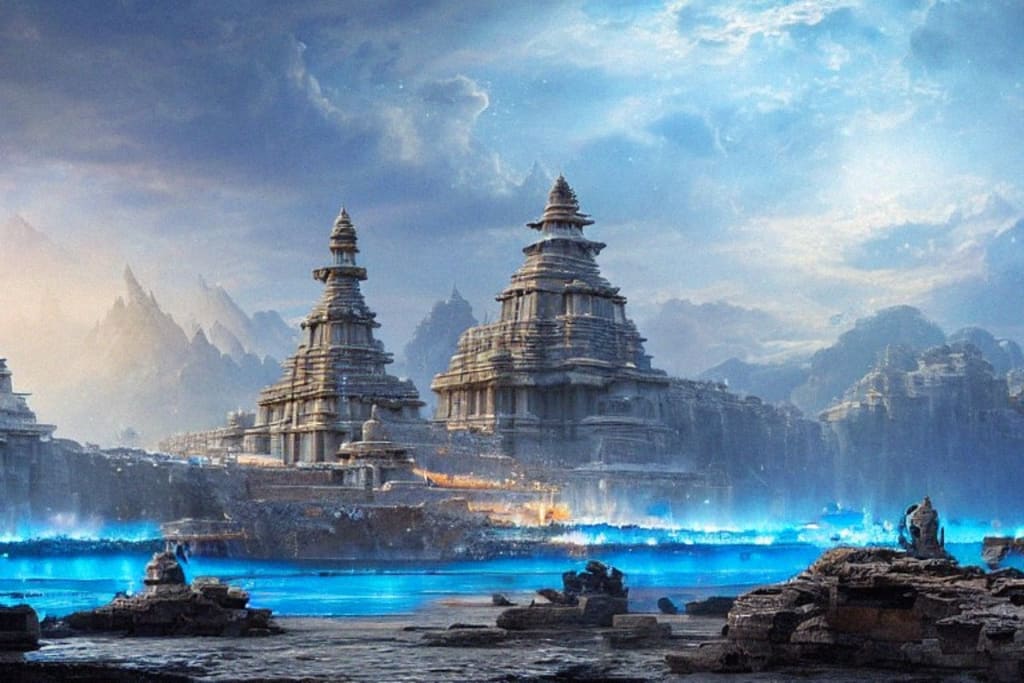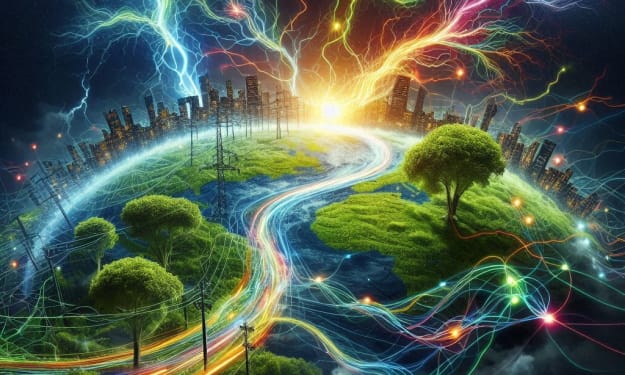You Should Need To Know About Lemuria
Myths of Lemuria

Lemuria, also known as Mu, is a hypothetical lost continent that was believed to have existed in the Pacific Ocean. The concept of Lemuria emerged in the 19th century as a result of the theory of continental drift and the search for a missing link between humans and primates. Although there is no scientific evidence to support the existence of Lemuria, the myth of the lost continent has captured the imagination of many people and has become a part of popular culture.
The Origins of the Lemuria Myth
The theory of Lemuria was first proposed by the zoologist Philip Sclater in 1864, who suggested that there was a land bridge that connected Madagascar to India and that it was once inhabited by a lost race of Lemurs. This theory was based on the similarities between the lemur populations in Madagascar and India, which led Sclater to believe that they must have originated from a common landmass. The name "Lemuria" was coined by the zoologist Ernst Haeckel in 1868, who suggested that the continent was the home of the first humans and was destroyed by a natural disaster.
The idea of Lemuria gained popularity in the 19th and early 20th centuries, and many people began to speculate about its location and its inhabitants. Some believed that Lemuria was the cradle of civilization and that it was the home of advanced beings who possessed great knowledge and power. Others believed that the Lemurians were a race of giants who lived in a paradise-like environment.
The Lemurian civilization was said to have existed before the time of Atlantis, and many believed that the two civilizations were connected. Some even claimed that the Lemurians had colonized Atlantis and that they were responsible for its downfall. According to the myth, the Lemurians possessed a great deal of knowledge and technology, including the ability to harness the power of crystals and use them for healing and communication.
Geological and Historical Evidence of Lemuria
The concept of Lemuria as a lost continent has been widely debated among scientists and historians. Many scientists and geologists reject the existence of Lemuria due to the lack of concrete geological and historical evidence to support its existence. However, some scholars and researchers believe that there may be some geological and historical evidence that points to the existence of this lost continent.
One of the main pieces of evidence that is often cited by supporters of Lemuria is the geological similarities between India and Madagascar. These two landmasses are separated by a vast ocean, yet they share similar geological features such as rock formations and fossil records. This has led some researchers to suggest that they were once part of a larger landmass that has since been lost to the ocean, which could be Lemuria.
Another piece of evidence that has been cited in support of Lemuria is the similarity of certain species found in both Madagascar and India, such as the primates known as lemurs. Some researchers suggest that these animals could have originated from a common ancestor that lived on Lemuria before it sank beneath the waves.
Despite these pieces of evidence, many scientists and geologists remain skeptical about the existence of Lemuria. They point out that there is no concrete evidence to support the idea of a lost continent, and that many of the supposed similarities between India and Madagascar could be explained by other factors such as plate tectonics and evolutionary processes.
In conclusion, while there are some geological and historical similarities between India and Madagascar that have led some researchers to suggest the existence of Lemuria, the concept remains largely controversial and unproven. Further research and investigation will be needed to determine the truth behind this intriguing myth.
Scientific Criticism and Skepticism about Lemuria
Scientific criticism and skepticism about Lemuria refer to the rejection of the existence of a hypothetical lost continent in the Indian Ocean known as Lemuria. The concept of Lemuria was first proposed in the mid-19th century as an explanation for the presence of certain plant and animal species on both sides of the Indian Ocean. However, the idea has been largely discredited by the scientific community due to a lack of evidence supporting its existence.
One of the primary reasons for scientific skepticism about Lemuria is the lack of geological evidence. There is no geological evidence to suggest that a lost continent existed in the Indian Ocean that would have connected Madagascar, India, and Australia. Additionally, there is no evidence of a large-scale cataclysmic event, such as a volcanic eruption or earthquake, that could have caused such a continent to sink into the ocean.
Another issue with the concept of Lemuria is that it was based on scientific theories that are now outdated. For example, it was once believed that the world's continents were originally joined together in a single landmass called Pangaea, which later broke apart into separate continents. However, modern plate tectonic theory has shown that the continents have moved and continue to move over time, and that there was never a single lost continent.
Critics also point out that the idea of Lemuria has been associated with racist and colonialist ideas. The concept was first proposed during a time when European colonial powers were exploring and colonizing much of the world, and there was a prevailing idea that non-European peoples were primitive and needed to be "discovered" and "civilized." The idea of a lost continent between India and Madagascar was seen as a way to explain the presence of certain plants and animals in the region, and to suggest that these areas had once been connected and part of a larger, more advanced civilization.
In conclusion, while the concept of Lemuria may be intriguing and has captured the imagination of many people, it lacks scientific evidence to support its existence. While it is possible that there may be undiscovered landmasses in the ocean, there is currently no evidence to suggest that a lost continent once existed between India and Madagascar. Scientific skepticism and critical thinking remain essential in separating fact from fiction in the study of our planet's history.
The End of Lemuria
The myth of Lemuria also includes stories of the continent's destruction. According to some versions of the myth, Lemuria was destroyed by a great flood, while others suggest that it was destroyed by a volcanic eruption or a massive earthquake. Some even believe that Lemuria still exists in some form, either as an underground civilization or as a parallel dimension.
The scientific community has rejected the idea of Lemuria, as there is no evidence to support the existence of a lost continent in the Pacific. However, the myth of Lemuria continues to capture the imagination of many people, and it has become a part of popular culture, inspiring books, films, and even video games.
Conclusion
The myth of Lemuria is a fascinating and enduring concept that has captured the imagination of people for over a century. While there is no scientific evidence to support the existence of Lemuria, the myth has become a part of popular culture and has inspired many works of fiction. The story of a lost continent that was home to an advanced civilization has a timeless appeal, and it is likely that the legend of Lemuria will continue to captivate people for many years to come.
About the Creator
Prakash R
Am a passionate writer with a love for storytelling. I believe in the power of words to inspire, inform, and entertain.
Enjoyed the story? Support the Creator.
Subscribe for free to receive all their stories in your feed. You could also pledge your support or give them a one-off tip, letting them know you appreciate their work.






Comments
There are no comments for this story
Be the first to respond and start the conversation.